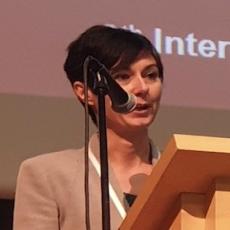Objectives
The overall aim is to provide the theoretical and methodological tools that allow knowing the different approaches that characterize clinical psychophysiology, as well as the salient aspects concerning psychopathology and its diagnosis, favoring the development of critical skills.
knowledge and understanding
The overall aim is to provide the theoretical and methodological tools that allow knowing the different approaches that characterize clinical psychophysiology, as well as the salient aspects concerning psychopathology and its diagnosis, favoring the development of critical skills. At the end of the course, the student will be able to know: a) how mind and body interact in influencing subjective experience, behavior, and psychological health; b) the main etiological models and the most recent neuroscientific paradigms used in the field of clinical psychophysiology; c) the neurobiological basis of the main mental disorders and their symptoms; d) the most innovative psychotherapeutic models; e) the main biomarkers and predictors of efficacy of psychotherapeutic approaches.
applying knowledge and understanding
At the end of the course, the student will be able to use the acquired knowledge in understanding evidence-based treatments.
making judgements
At the end of the course, the student will be able to use the acquired knowledge in the critical reading of fake news and unfounded therapeutic claims.
communication skills
Critical and communication skills will be developed through practical exercises, such as reading and critical analysis of scientific articles; planning and participation in a clinical psychophysiology study, and commentary of patients' videos shown during the lessons.
learning skills
During the course there will be two intermediate tests, designed to test and improve the student's learning skills and the ability to communicate what they have learned.
Channels
NESSUNA CANALIZZAZIONE
 CRISTINA OTTAVIANI Teacher profile
CRISTINA OTTAVIANI Teacher profile
Programme
The lectures will be complemented by various practical activities to which students can participate individually and/or in small groups.
In the first part of the course (from the first to the third week: about 12 hours), the overcoming of the old antitheses will be introduced (e.g. mind-body; nature-culture; conscious-unconscious; instinct-reason) and the neuroscience paradigm will be applied to clinical psychology and psychopathology. In the second part of the course (from the fourth to the eighth week: about 20 hours), the main mental disorders and the related psychotherapeutic approaches will be introduced, with particular emphasis on those that are evidence-based. In this phase of the course, the neurobiological bases of the main mental disorders and their symptomatology will be addressed. In the third and last part of the course (from the ninth to the twelfth week: about 16 hours), the most innovative therapeutic models in the field of mental health will be examined, with particular reference to predictors of effectiveness (e.g. biomarkers).
Adopted texts
The reference material consists of the collection of slides, articles, and texts published in e-learning.
Bibliography
A.M. Kring, G.C. Davison, J.M. Neale, S.L. Johnson. Abnormal Psychology. Zanichelli. 13th edition.
Prerequisites
The prerequisites for participation include critical comprehension skills and a good level of motivation to learn and work in groups. Pre-attendance of other courses is not foreseen.
Frequency modes
The lessons and other training activities are oriented to "regular students", not necessarily always present in the classroom, but who, following the lessons on elearning2.uniroma1.it and keeping in touch with a colleague present in class, will be able to organize their own learning in an active and regular way. The "regular students" regularly follow the lessons in the classroom and in elearning2 (when they can do it only in elearning2). Regular attendance of all classes without postponing the study of the text and slides will allow regular students to: a) be able to participate more actively in the discussion and the activities proposed during the lesson; b) pass the exam on the first try and in any case within the year.
Exam modes
The exam is oral and the questions refer to the material and power-point presentations made available through e-learning.
The duration of the exam will be 30 minutes.
The final grade will be based on the evaluation of reasoning skills acquired by the student during the course and the knowledge relative to the core theoretical and applicative models in clinical psychology. The laude will be awarded to students who show both competencies.
| Exam reservation date start | Exam reservation date end | Exam date |
|---|---|---|
| 16/12/2018 | 11/01/2019 | 16/01/2019 |
| 03/05/2019 | 29/05/2019 | 03/06/2019 |
| 10/06/2019 | 05/07/2019 | 10/07/2019 |
- Academic year: 2018/2019
- Curriculum: Curriculum unico
- Year: Second year
- Semester: First semester
- SSD: M-PSI/08
- CFU: 6
- Attività formative caratterizzanti
- Ambito disciplinare: Psicologia dinamica e clinica
- Lecture (Hours): 48
- CFU: 6.00
- SSD: M-PSI/08
